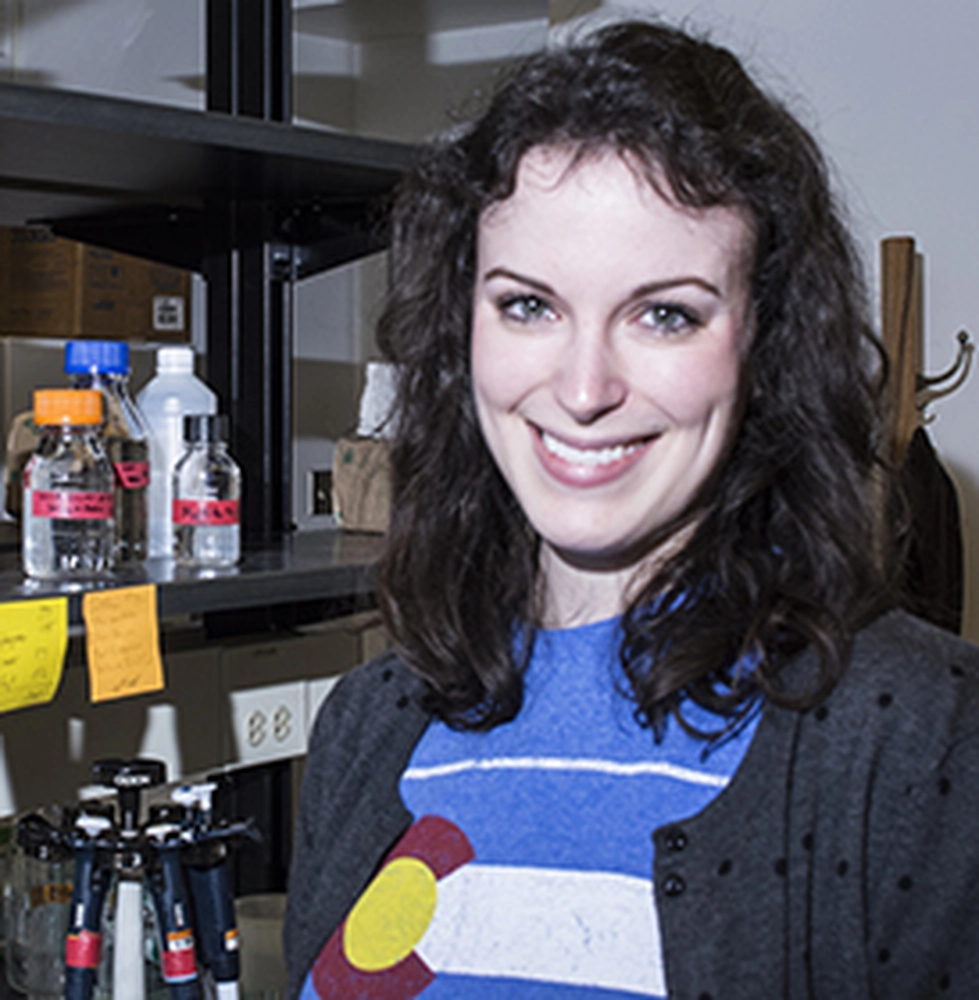
The Department of Biochemistry congratulates first-year graduate student Mara Livezey on winning a prestigious National Science Foundation Graduate Research Fellowship. The fellowship provides three years of pre-doctoral funding, which will support her work in Professor David Shapiro’s lab.
Livezey is currently working on two projects with Professor Shapiro, whose focus is on the discovery and use of novel small molecule biomodulators to identify and analyze interactions and pathways important in cancer and in the development of these small molecules as potential anticancer drugs.
Livezey’s first project is working on getting a new anti-cancer drug, BHPI, ready for clinical trials by figuring out how exactly the drug is so successful at shrinking tumors.
Her second project explores the pathway by which estrogen is protective in neurodegenerative diseases, such as Parkinson’s and Alzheimer’s.
Livezey says that her interest in these projects and the Shapiro Lab is not just because the science is so fascinating but also because the experience of disease in her own family has motivated her to search for cures. “I understand what the possible impacts are, and that is why science is so great.”
A first-year graduate student, Livezey chose the University of Illinois’s Biochemistry department because of the variety of biochemical research being done, including structural biology using crystallography; the physiology-related work; and the connection with the Chemical Biology department.
She applied for the fellowship during her second rotation with Biochemistry Affiliate Dr. Jefferson Chan, who, along with Dr. Auinash Kalsotra (Assistant Professor in Biochemistry), Livezey credits for providing significant feedback on her research statement and application.
The NSF Graduate Research Fellowship Program (GRFP) is awarded yearly to ensure the vitality and diversity of the scientific and engineering workforce of the United States. The program recognizes and supports outstanding graduate students who are pursuing research-based master's and doctoral degrees in science and engineering. The GRFP provides three years of support for the graduate education of individuals who have demonstrated their potential for significant achievements in science and engineering.